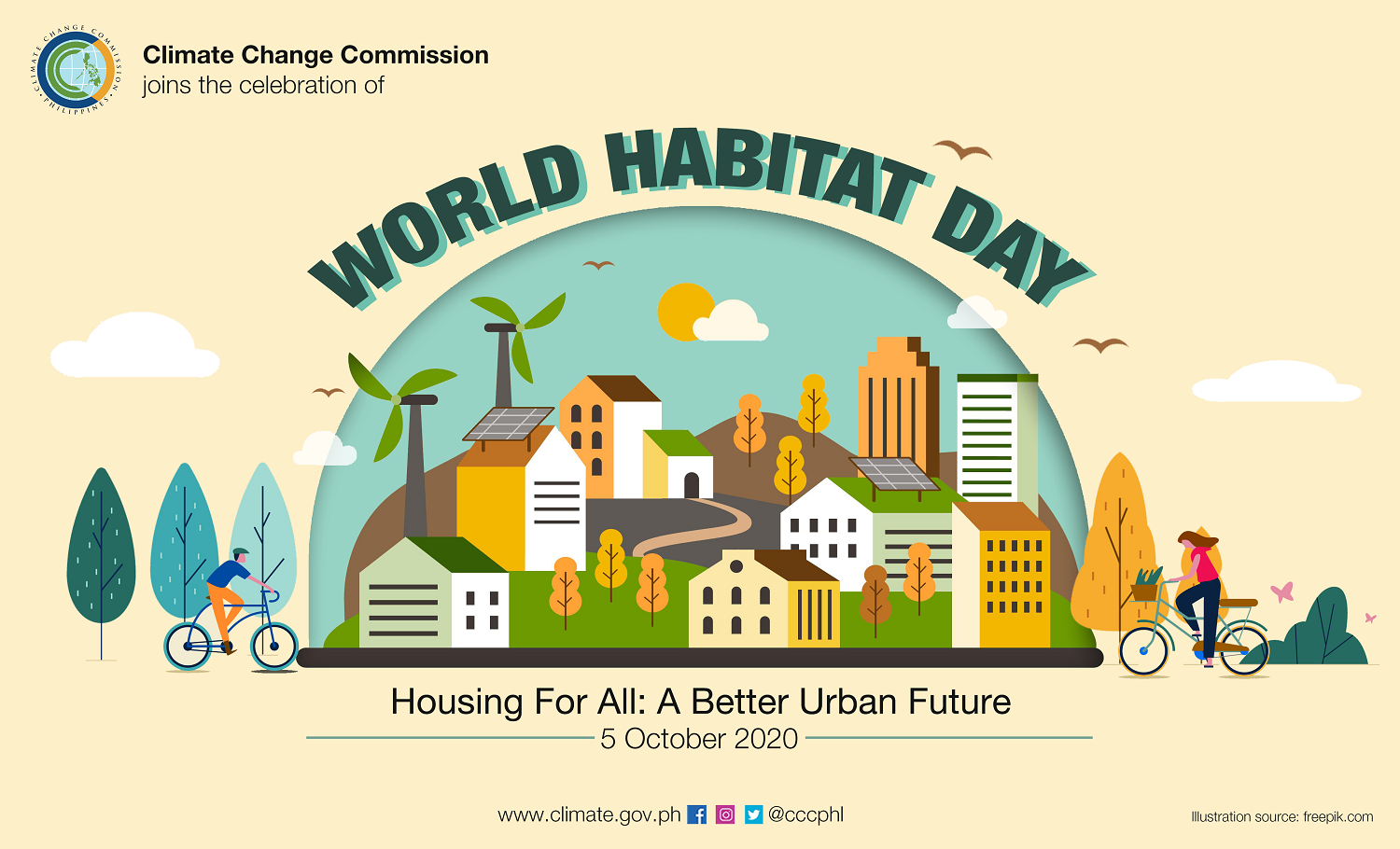
October 04, 2020 Sunday

MANILA, 5 October 2020 — In observance of the annual World Habitat Day, with this year’s theme “Housing For All: A Better Urban Future,” the Climate Change Commission (CCC) urged leaders from the public and private sectors to enable sustainable and climate-adaptive systems within the housing sector in order to improve shelter and other human settlement concerns within cities and communities.
Observed every first Monday of October, World Habitat Day focuses on the state of human settlements and on the basic right of all to adequate shelter. It focuses on improving all levels of partnership between government and relevant stakeholders in successfully implementing policies and methods to ensure adequate and affordable homes for all.
This observance recognizes the role of cities and local governments around the world in eliminating inequalities and poverty levels by providing access to basic amenities like shelter, food, and water for all, especially in this time of pandemic and climate crisis. Even before the pandemic began, however, there was already an estimated 1.8 billion people living in slums and informal settlements, inadequate housing or in homelessness in our cities worldwide, with around three billion people lacking basic handwashing facilities, according to the United Nations.
As cities prioritize COVID-19 response, the threat of typhoons, flooding, extreme heat, and spread of vector-borne diseases due to climate change remains. This risk is particularly worrying for the Philippines where populations and incidence of poverty are high. Adapting to climate change is thus an imperative for cities, home to half of the world’s population and where 80% of GDP is produced, according to the Global Commission on Adaptation.
The CCC highlighted ongoing work for the development of science-based climate risk management interventions for five cities under the Building Climate Resilient Urban Plans and Designs (BCRUPD) project with the Department of Human Settlements and Urban Development, League of Cities of the Philippines, UN Habitat, and other key partner agencies and organizations.
The CCC also committed to foster capacity building and knowledge exchange for green urban development, such as in its existing partnership with the National Housing Authority and the Philippine Green Building Council best practices on sustainable building designs and standards, including renewable energy and energy efficiency, and build a sustainable technical support network for government agencies and relevant stakeholders for low-emission local development strategies.
In this World Habitat Day, let us all support efforts that would enable more sustainable and climate-adaptive cities and communities, to ensure a better life for all in an urbanizing world.